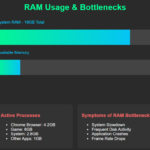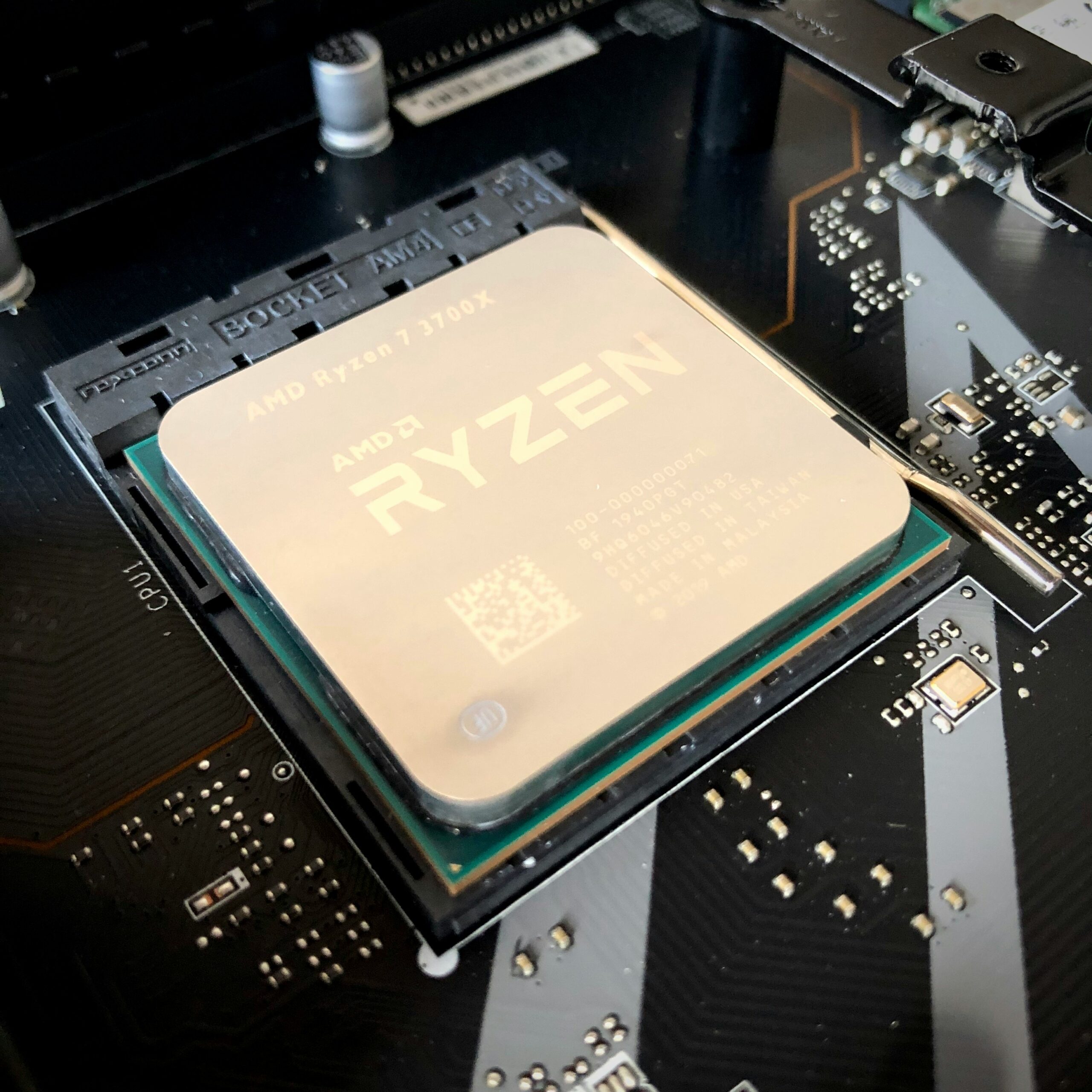CPU Bottleneck Calculator
CPU Bottleneck Calculator: Discover how to optimize your system performance with our comprehensive guide on identifying and resolving CPU bottlenecks.
In the world of gaming and high-performance computing, achieving the best system performance is crucial One of the most common challenges enthusiasts face is bottlenecking, which can significantly reduce system efficiency and performance.
The CPU bottleneck calculator like the one presented above is an essential tool that helps users identify if their CPU is underperforming or limiting the potential of other components, especially the GPU.
This article will explore the concept of CPU bottlenecks explain how to use the calculator, and answer the most common questions about CPU bottlenecking.
What is a CPU Bottleneck?
A bottleneck occurs when one component of a system limits the performance of another. In a computer system, the most common bottleneck occurs between the CPU (Central Processing Unit) and the GPU (Graphics Processing Unit).
If the CPU can’t keep up with the demands of the GPU, the system’s overall performance will drop. This is referred to as a “CPU bottleneck.”
In simple terms, a CPU bottleneck happens when your processor isn’t fast enough to handle the workload of the GPU, causing slower processing and lower frame rates. As a result, you won’t be able to fully utilize the power of your GPU leading to lagging, stuttering, or low-quality rendering in games or applications.
Why Use a CPU Bottleneck Calculator?
Using a CPU bottleneck calculator is essential to gauge whether your CPU is holding back your system’s potential especially if you plan to run demanding applications or play high-end games. Here’s why you should consider using it:
- Optimize Performance: Identifying if your CPU is bottlenecking your GPU or other components helps you make informed decisions about hardware upgrades. For example, you can avoid spending money on an expensive GPU if your current CPU can’t keep up with its demands.
- Prevention of Lag and Frame Drops: CPU bottlenecks often result in choppy gameplay and lower frame rates in games With the calculator, you can assess whether your system will run smoothly with a particular game or program
- Hardware Matching: A bottleneck calculator can help ensure that your CPU and GPU are well-matched, providing you with the best possible balance of performance without unnecessary over- or under-spending.
- Upgrade Planning: If you’re planning on upgrading your CPU or GPU, the calculator can guide you in choosing components that complement each other, ensuring there’s no performance mismatch.
How to Use the CPU Bottleneck Calculator
The CPU bottleneck calculator is simple and intuitive. Here’s a step-by-step guide to using it:
1. Enter CPU Speed (GHz):
- Description: This is the speed at which your CPU operates, measured in gigahertz (GHz). The higher the GHz, the faster your CPU can process data.
- Example: Enter a value like 3.5 GHz, which is a common speed for many mid-range processors.
2. Enter CPU Core Count:
- Description: The core count indicates how many individual processing units your CPU has. More cores allow for better multitasking and can improve performance in applications optimized for multi-core usage.
- Example: If your CPU has 4 cores, enter 4 in the field.
3. Enter CPU Usage (%):
- Description: This refers to the percentage of CPU power currently in use by your system. You can check this value in your system’s task manager or resource monitor.
- Example: Enter a value like 50% if half of your CPU is being utilized during regular tasks.
4. Enter Game/Application CPU Requirement (%):
- Description: This is the amount of CPU power that a specific game or application requires to run smoothly.
- Example: If a game requires 70% CPU usage, enter 70 in this field.
5. Calculate Bottleneck:
- After filling in the above fields, click on the “Calculate CPU Bottleneck” button. The calculator will display the bottleneck status, informing you whether your CPU is a limiting factor in your system.
6. Interpret the Results:
- The result will indicate whether your CPU is likely to bottleneck your GPU or not. If it says, “No significant bottleneck,” you can rest assured that your CPU and GPU are well-matched. However, if the result states, “CPU is likely to bottleneck the GPU,” you may need to consider upgrading your CPU.
Common Questions About CPU Bottlenecks
1. What is a good CPU-GPU balance?
- A well-balanced system means that your CPU and GPU work together efficiently without one holding back the other. A general rule of thumb is to pair a mid-range CPU with a mid-range GPU and a high-end CPU with a high-end GPU. However, the exact balance depends on the specific hardware and software you are using.
2. How do I know if I have a CPU bottleneck?
- Symptoms of a CPU bottleneck include low frame rates in games, lagging in high-performance tasks, or the CPU reaching 100% usage while the GPU is underutilized. Using this calculator can help confirm if your CPU is indeed causing a bottleneck.
3. Does overclocking my CPU reduce bottlenecking?
- Overclocking your CPU can improve its speed, potentially reducing bottlenecks. However, this comes with risks such as increased heat output and potential system instability. It’s important to ensure you have proper cooling and power supply if you choose to overclock.
4. Can a bottleneck damage my hardware?
- While a bottleneck won’t damage your hardware, it can prevent you from getting the most out of your components. It may cause a suboptimal user experience in games or programs that demand high performance.
5. What other factors contribute to bottlenecking?
- While the CPU and GPU are the most talked-about components, other factors like insufficient RAM, slow storage drives (HDD vs. SSD), or poor cooling can also contribute to overall system bottlenecking.
6. Will upgrading my CPU always fix bottlenecking issues?
- Not always. Upgrading your CPU can alleviate a bottleneck if your GPU is being underutilized. However, if your GPU is outdated or weak, upgrading the CPU won’t help much. It’s important to consider both components when diagnosing bottleneck issues.
7. Is there a specific percentage of CPU usage that indicates bottlenecking?
- Typically, if your CPU is operating at or near 100% usage during intensive tasks or gaming, and your GPU is underutilized (below 70%), you are likely experiencing a CPU bottleneck. The calculator helps you determine this balance by analyzing the current CPU and game/application usage.
8. How accurate is the CPU Bottleneck Calculator?
- The CPU bottleneck calculator provides a general estimate of bottlenecking based on the data you input. It doesn’t account for every variable, such as specific game optimizations or background processes, but it gives a useful snapshot of potential performance issues.
Conclusion
The CPU Bottleneck Calculator is an indispensable tool for gamers and tech enthusiasts looking to optimize their system’s performance. Whether you’re deciding on upgrades or trying to diagnose performance problems this calculator provides a simple way to ensure your CPU isn’t holding back your system.
By understanding the relationship between your CPU and GPU and using tools like this calculator you can make informed decisions to improve your gaming and computing experience.
From reducing lag to preventing wasted hardware potential the CPU Bottleneck Calculator is a must-have for anyone serious about getting the most from their PC.





